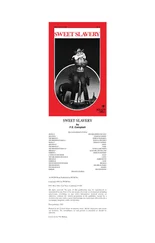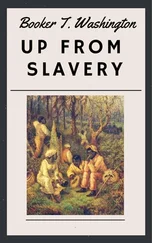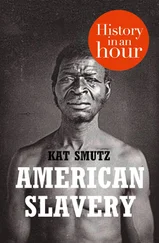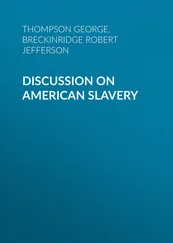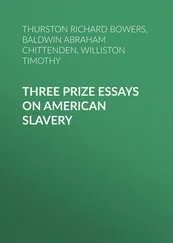Dr. DEMMING, a gentleman of high respectability, residing in Ashland, Richland county, Ohio, stated to Professor Wright, of New York city,
"That during a recent tour at the south, while ascending the Ohio river, on the steamboat Fame, he had an opportunity of conversing with a Mr. Dickinson, a resident of Pittsburg, in company with a number of cotton-planters and slave-dealers, from Louisiana, Alabama, and Mississippi. Mr. Dickinson stated as a fact, that the sugar planters upon the sugar coast in Louisiana had ascertained, that, as it was usually necessary to employ about twice the amount of labor during the boiling season, that was required during the season of raising, they could, by excessive driving, day and night, during the boiling season, accomplish the whole labor with one set of hands. By pursuing this plan, they could afford to sacrifice a set of hands once in seven years! He further stated that this horrible system was now practised to a considerable extent! The correctness of this statement was substantially admitted by the slaveholders then on board."
The late Mr. SAMUEL BLACKWELL, a highly respected citizen of Jersey city, opposite the city of New York, and a member of the Presbyterian church, visited many of the sugar plantations in Louisiana a few years since; and having for many years been the owner of an extensive sugar refinery in England, and subsequently in this country, he had not only every facility afforded him by the planters, for personal inspection of all parts of the process of sugar-making, but received from them the most unreserved communications, as to their management of their slaves. Mr. B., after his return, frequently made the following statement to gentlemen of his acquaintance,--"That the planters generally declared to him, that they were obliged so to over-work their slaves during the sugar-making season, (from eight to ten weeks,) as to use them up in seven or eight years. For, said they, after the process is commenced, it must be pushed without cessation, night and day; and we cannot afford to keep a sufficient number of slaves to do the extra work at the time of sugar-making, as we could not profitably employ them the rest of the year."
It is not only true of the sugar planters, but of the slaveholders generally throughout the far south and south west, that they believe it for their interest to wear out the slaves by excessive toil in eight or ten years after they put them into the field. 4
Rev. DOCTOR REED, of London, who went through Kentucky, Virginia and Maryland in the summer of 1834, gives the following testimony:
"I was told confidently and from excellent authority, that recently at a meeting of planters in South Carolina, the question was seriously discussed whether the slave is more profitable to the owner, if well fed, well clothed, and worked lightly, or if made the most of at once, and exhausted in some eight years. The decision was in favor of the last alternative. That decision will perhaps make many shudder. But to my mind this is not the chief evil. The greater and original evil is considering the slave as property. If he is only property and my property, then I have some right to ask how I may make that property most available. "
"Visit to the American Churches," by Rev. Drs. Reed and Mattheson. Vol. 2. p. 173.
Rev. JOHN O. CHOULES, recently pastor of a Baptist Church at New Bedford, Massachusetts, now of Buffalo, New York, made substantially the following statement in a speech in Boston.
"While attending the Baptist Triennial Convention at Richmond, Virginia, in the spring of 1835, as a delegate from Massachusetts, I had a conversation on slavery, with an officer of the Baptist Church in that city, at whose house I was a guest. I asked my host if he did not apprehend that the slaves would eventually rise and exterminate their masters.
"Why," said the gentleman, "I used to apprehend such a catastrophe, but God has made a providential opening, a merciful safety valve, and now I do not feel alarmed in the prospect of what is coming. 'What do you mean, said Mr. Choules, 'by providence opening a merciful safety valve?' Why, said the gentleman, I will tell you; the slave traders come from the cotton and sugar plantations of the South and are willing to buy up more slaves than we can part with. We must keep a stock for the purpose of rearing slaves, but we part with the most valuable, and at the same time, the most dangerous, and the demand is very constant and likely to be so, for when they go to these southern states, the average existence IS ONLY FIVE YEARS!"
Monsieur C. C. ROBIN, a highly intelligent French gentleman, who resided in Louisiana from 1802 to 1806, and published a volume of travels, gives the following testimony to the over-working of the slaves there:
"I have been a witness, that after the fatigue of the day, their labors have been prolonged several hours by the light of the moon; and then, before they could think of rest, they must pound and cook their corn; and yet, long before day, an implacable scold, whip in hand, would arouse them from their slumbers. Thus, of more than twenty negroes, who in twenty years should have doubled, the number was reduced to four or five. "
In conclusion we add, that slaveholders have in the most public and emphatic manner declared themselves guilty of barbarous inhumanity toward their slaves in exacting from them such long continued daily labor. The Legislatures of Maryland, Virginia and Georgia, have passed laws providing that convicts in their state prisons and penitentiaries, "shall be employed in work each day in the year except Sundays, not exceeding eight hours, in the months of November, December, and January; nine hours, in the months of February and October, and ten hours in the rest of the year." Now contrast this legal exaction of labor from CONVICTS with the exaction from slaves as established by the preceding testimony. The reader perceives that the amount of time, in which by the preceding laws of Maryland, Virginia, and Georgia, the convicts in their prisons are required to labor, is on an average during the year but little more than NINE HOURS daily. Whereas, the laws of South Carolina permit the master to compel his slaves to work FIFTEEN HOURS in the twenty-four, in summer, and FOURTEEN in the winter--which would be in winter, from daybreak in the morning until four hours after sunset!--See 2 Brevard's Digest, 243.
The other slave states, except Louisiana, have no laws respecting the labor of slaves, consequently if the master should work his slaves day and night without sleep till they drop dead, he violates no law!
The law of Louisiana provides for the slaves but TWO AND A HALF HOURS in the twenty-four for "rest!" See law of Louisiana, act of July 7, 1806, Martin's Digest 6. 10--12.
3.We do not mean that they are not suffered to speak, but, that, as conversation would be a hindrance to labor, they are generally permitted to indulge in it but little.
4.Alexander Jones, Esq., a large planter in West Feliciana, Louisiana, published a communication in the "North Carolina True American," Nov. 25, 1838, in which, speaking of the horses employed in the mills on the plantations for ginning cotton, he says, they "are much whipped and jaded;" and adds, "In fact, this service is so severe on horses, as to shorten their lives in many instances, if not actually kill them in gear."
Those who work one kind of their "live stock" so as to "shorten their lives," or "kill them in gear," would not stick at doing the same thing to another kind.
Table of Contents
Читать дальше

